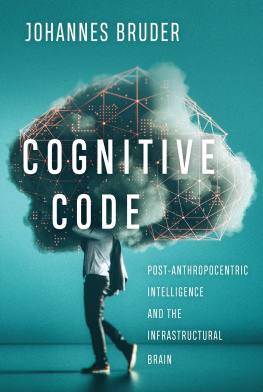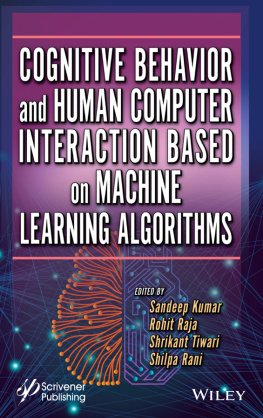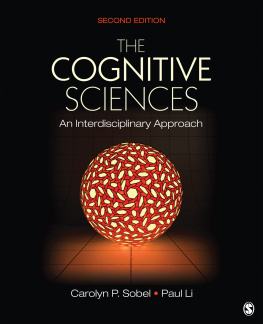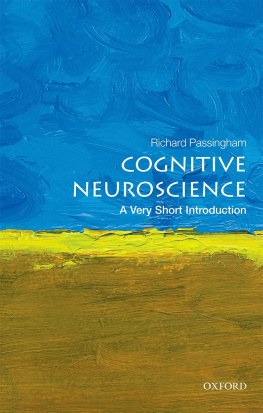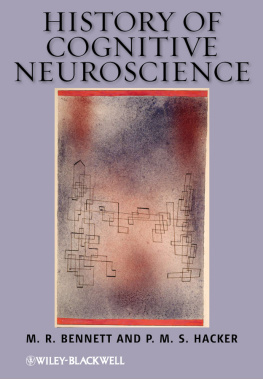
COGNITIVE CODE
COGNITIVE CODE
POST-ANTHROPOCENTRIC INTELLIGENCE
AND THE INFRASTRUCTURAL BRAIN
JOHANNES BRUDER
McGill-Queens University Press
Montreal & Kingston London Chicago
McGill-Queens University Press 2019
ISBN 978-0-7735-5916-5 (cloth)
ISBN 978-0-7735-5917-2 (paper)
ISBN 978-0-7735-5969-1 (ePDF)
ISBN 978-0-7735-5970-7 (ePUB)
Legal deposit fourth quarter 2019
Bibliothque nationale du Qubec
Printed in Canada on acid-free paper that is 100% ancient forest free (100% post-consumer recycled), processed chlorine free
This book has been published with the help of a grant from the Institute of Experimental Design and Media Cultures, University of Applied Sciences and Arts Northwestern Switzerland.
We acknowledge the support of the Canada Council for the Arts.
Nous remercions le Conseil des arts du Canada de son soutien.
Library and Archives Canada Cataloguing in Publication
Title: Cognitive code : post-anthropocentric intelligence and the infrastructural brain / Johannes Bruder.
Names: Bruder, Johannes, 1983 author.
Description: Includes bibliographical references and index.
Identifiers: Canadiana (print) 20190198206 | Canadiana (ebook) 20190198257 | ISBN 9780773559165 (cloth) | ISBN 9780773559172 (paper) | ISBN 9780773559691 (ePDF) | ISBN 9780773559707 (ePUB)
Subjects: LCSH: Neurosciences. | LCSH: Artificial intelligence. | LCSH: Cognitive neuroscience. | LCSH: Computational neuroscience.
Classification: LCC QP355.2.B78 2019 | DDC 612.8/2330285dc23
This book was typeset in 10.5/13 Sabon.
Contents
Figures
Acknowledgments
I think of this book as a product of various, intersecting institutional lives that have contributed to the interdisciplinary approach of this book. The research that undergirds my discussion of brain imaging epistemologies began during my time at the National Competence Center for Research on Iconic Criticism (or eikones) at the University of Basel, where I had many illuminating discussions and exchanges about imaging and modelling in various fields. I thank Inge Hinterwaldner, Reinhard Wendler, David Magnus, Iris Laner, Il-Tschung Lim, Sophie Schweinfurth, and Leon Wansleben for their generosity. Without the support of my former office mate Thomas Brandstetter, I would probably never have started to write this book. He will always occupy a special place deep down in my amygdala. Of all the people I cooperated with during that time, Svenja Matusall has had the most profound impact on this book. Our discussions and the workshops we organized together were rewarding and reassuring at the same time.
A number of researchers who were part of or frequented the Department of Social Science, Health and Medicine at Kings College London were of utmost importance in regard to the sociological and anthropological backbone of this book, most importantly Des Fitzgerald, Nicole Batsch, Morten Hillgard Blow, Angela Filipe, Cathy Herbrand, Claire Marris, Erika Mansnerus, Tara Mahfoud, and Luna Rodrigues Silva. Special thanks go to the members of the European Neuroscience and Society Network and to the attendees of its Neuroschool in Bergen.
A few years ago, I took up residence in the Critical Media Lab of the Institute of Experimental Design and Media Cultures in the Academy of Art and Design at the University of Applied Sciences and Arts Northwestern Switzerland in Basel. I am indebted to the members of the Lab for all the discussions we had and for all the welcome distraction they provided. To name but a few, they include Jamie Allen, Leonie Hsler, Felix Gerloff, Moritz Greiner-Petter, Shintaro Miyazaki, Samuel Hanselmann, Flavia Caviezel, Nuria Barcelo, Jan Torpus, and Christiane Heibach. Above all, I thank Claudia Mareis for her generous support and for opening up both new intellectual and new professional perspectives.
I am also grateful to a cast of researchers who were instrumental in the process of finishing this book. Chris Salter, Maya Indira Ganesh, Clemens Apprich, Luciana Parisi, Johanna Schindler, and the members of the Institute of Advanced Studies Media Cultures of Computer Simulation, Leuphana University helped me to sharpen my arguments. The discussions on smartness that I had with Orit Halpern over the past three years are of particular significance; she was the first to read the entire manuscript and provided me with an unanticipated reading of what I had written that differed from my own. I also thank the anonymous reviewers of the manuscript, who had a similar influence on the completion of the book. Their readings opened new avenues, and Khadija Coxon and the team at McGill-Queens University Press helped me to cut to the chase.
I am, of course, particularly grateful to everyone who agreed to be interviewed or observed. The diverse picture of neuroscience research practice and contemporary work on artificial intelligence presented in this study would not have been possible if so many people had not opened up their labs and taken the time to answer the most dilettante questions.
My most profound intellectual debt, of course, is to the supervisors of my doctoral thesis. Nik Rose and Martina Merz helped me to find my own ways of studying the (neuro)sciences and tirelessly pointed out any weaknesses in my approach. They are both present in this book as advisors and as my science-studies conscience.
Last but not least, I thank my family and friends for their unconditional support over the years. You know who you are.
The research that undergirds this book was supported by Swiss National Science Foundation Grant No. 100016_156786 (Project Title: Machine Love?).
COGNITIVE CODE
INTRODUCTION
A New Cerebral Alley
INFRASTRUCTURAL INTELLIGENCE
Infrastructure is traditionally conceived as substrate literally structure that organizes something else from below. Recently, however, infrastructure has supposedly become smart, autonomous even, as it increasingly includes technologies fuelled by algorithms that develop on their own in response to ever-growing bodies of data. To be sure, intelligent infrastructure still relies on humans for the tedious informational labour of labelling data. But its inner workings reputedly surpass and even elude us. Whereas information infrastructure is designed to be ready-at-hand (Bowker et al. 2010, 99), intelligent infrastructure is destined to get out of hand. The substrate, as it were, develops an intelligent life of its own.
This book traces one of the less visible paths by which infrastructural intelligence is emerging, what I call the new cerebral alley. When I conducted ethnographic fieldwork in brain imaging institutes in the United Kingdom and Switzerland from 200913, I was not aware that the old link between neuroscience and artificial intelligence (AI) was about to be revived. It seemed to be a thing of the past, most notably an element of mid-century cybernetics, that had been discredited through various AI winters, which seemed to prove that artificial or machinic intelligence could not exist. However, one of my interviewees, Gareth, the head of a British brain imaging lab, alluded to an analogy between the human brain and planetary-scale information processing infrastructure: The actual implementation [of cognition] is completely irrelevant. It can be in the Cloud, you know. It doesnt matter. Gareths lack of concern with the biophysical reality of the brain reflects an attitude that I argue is ingrained in the new epistemologies of brain imaging and cognitive neuroscience. The traditional focus of brain imaging was the structure of the brain its biological substrate as well as its functional regions and its goal was to produce an atlas of
Next page
